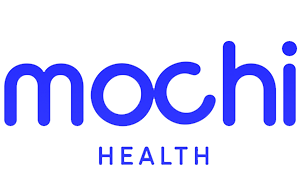Short Summary:
This comprehensive guide explores the best practices for accessing affordable weight loss injections, covering types like GLP-1 agonists, HCG, and lipotropics while emphasizing research, physician consultations, and finding discounts or insurance coverage. By consulting professionals, comparing providers, and understanding costs and insurance options, you can make informed decisions.
Best Practices for Accessing Affordable Weight Loss Injections
When you’re looking to lose weight, exploring effective options is essential. Weight loss injections have gained popularity among individuals seeking quick results. However, affordability can be an issue. Understanding the best practices for accessing affordable options will help you achieve your goals without breaking the bank.
Understand the Types of Weight Loss Injections
Before diving into how to find affordable weight loss injections, it’s important to know the types available. Here’s a quick summary of how each one works, according to the NIH:
- Semaglutide (Wegovy, Ozempic): Mimics a hormone called GLP‑1 that targets areas of the brain that regulate appetite and food intake.
- Tirzepatide (Zepbound): Mimics two hormones, glucose‑dependent insulinotropic polypeptide (GIP) and GLP‑1, to target areas of the brain that regulate appetite and food intake.
- Liraglutide (Saxenda): Mimics a hormone called glucagon‑like peptide‑1 (GLP‑1) that targets areas of the brain that regulate appetite and food intake.
There are other affordable weight loss medications available, but they may not be FDA-approved or thoroughly researched. Please consult with your doctor about any new medications you’re planning to start.
Research Your Options
The first step to finding affordable weight loss injections is thorough research. Numerous clinics and medical practices offer these services, but their prices can vary significantly. Use the following strategies:
- Online Reviews: Check reviews on platforms like Yelp or Google to gauge the quality and pricing of different services.
- Local Clinic Comparison: Make a list of local clinics and compare their prices.
Consult with a Physician
Before starting any weight loss injection, it is essential to consult with a healthcare professional. This is vital for both safety and effectiveness. They can guide you to the best options based on your health profile. Additionally, they might refer you to pharmacies or clinics that offer competitive prices.
Look for Discounts and Payment Plans
Many clinics offer promotions, especially for first-time visitors. Sign up for newsletters or follow them on social media to stay informed about special deals. Here are some methods to find discounts:
- Membership Discounts: Some medical facilities offer a membership plan that provides significant savings on treatments.
- Seasonal Promotions: Keep an eye out for discounts during holidays or special events, and pay attention to prices that may increase after a promotional period.
Consider Online Options
The rise of telemedicine has made it easier to access medical services online. Many reputable companies offer weight loss injections via mail. Advantages include:
- Lower Costs: Online pharmacies may have lower overhead than physical clinics.
- Convenience: You can order injections from the comfort of your home.
However, always ensure that you purchase from licensed and accredited providers. Look for customer reviews and confirm the legitimacy of the pharmacy.
Check for Health Insurance Coverage
Your insurance plan may cover part of the costs associated with weight loss injections. Contact your insurer to inquire about your options. If your primary care physician deems the injections medically necessary, you might find some financial relief.
Engage in Group Discounts
Another innovative way to reduce costs is by organizing or joining a weight loss group. Many clinics may offer group rates for members, making the overall expense more manageable. Consider how forming or joining a group can benefit your wallet and your motivation!
Comparing Different Types of Weight Loss Injections: Efficacy and Cost
When considering weight loss injections, understanding their efficacy and cost is essential to making the right choice for your health journey. With a variety of options available, each type has unique benefits and pricing structures.
Types of Weight Loss Injections
There are several kinds of weight loss injections currently offered in the market. Here’s a breakdown of the most common types:
- Branded semaglutide, tirzepatide, and liraglutide (Ozempic, Wegovy, Zepbound, Saxenda): These medications are FDA-approved options that have been thoroughly researched and tested. They are produced by pharmaceutical companies. Typically, these are going to be the most expensive options.
- Generic Liraglutide (Victoza): There are a few generic options available for liraglutide that have been approved by the FDA. Generic versions of medications are produced by pharmaceutical companies, but are cheaper options than their branded counterparts.
- Compounded semaglutide, tirzepatide, and liraglutide: These are custom-made by compounding pharmacies. They are typically produced in licensed U.S. compounding pharmacies but are not FDA-approved. They are typically cheaper than their branded counterparts, but their potency might be inconsistent, since compounded drugs aren’t subject to the same rigorous FDA manufacturing standards as the originals.
Efficacy of Weight Loss Injections
The effectiveness of these injections can vary widely based on individual circumstances, including diet, exercise, and overall health. The best way to evaluate which will be the most effective for your needs is to consult with your physician.
Cost Considerations
Cost can be a significant factor in choosing a weight loss injection. Prices vary based on the type and the provider, so you should assess your options carefully.
- Branded and Generic Medications: The cost for these injections can range from $800 to $1,500 per month without insurance. Some insurance plans may cover part of the expense, so it’s worth checking with your provider.
- Compounded Medications: Prices often vary widely, typically ranging from $120 to $300 per month. However, many clinics offer packages that can reduce costs.
Factors to Consider When Choosing
When deciding on which weight loss injection to pursue, consider the following:
- Your weight loss goals: Define what you hope to achieve. This will help you select an injection aligned with your ambitions.
- Your budget: Analyze what you can comfortably afford, considering both monthly and ongoing treatment costs.
- Your health condition: Always consult with a healthcare professional to assess whether the injection aligns with your health status.
- Potential side effects: Be mindful of possible adverse reactions. Understanding the risks associated with each type can help mitigate complications.
Choosing the best weight loss injection requires careful consideration of efficacy, cost, personal health, and lifestyle. Consulting with a healthcare provider can also provide personalized insights, helping you navigate your options effectively.
Our Recommended Weight Loss Medication Program


Navigating Insurance Coverage for Weight Loss Injections
Navigating the maze of insurance coverage for weight loss injections can seem daunting. However, understanding how to approach your insurance provider can make this journey much easier. Here are some effective strategies to ensure you make the most of your insurance plan when seeking affordable weight loss injections.
First, it is essential to check whether your insurance plan provides any coverage for weight loss injections. Many plans vary significantly in their coverage options. Some might completely exclude these treatments, while others may offer partial reimbursement. Take these steps to gain clarity:
- Review Your Policy: Look closely at your insurance documents. Many plans have specific sections that outline covered treatments. Identify keywords such as “obesity treatment” or “weight management.”
- Contact Customer Support: Reach out to your insurer’s customer service. Ask direct questions about coverage related to weight loss injections. Be sure to note the name of the representative you spoke with and any reference numbers provided.
- Seek Clarification on Requirements: Different plans may have specific criteria for coverage, such as a BMI threshold or previous weight loss attempts. Understand what documentation you might need.
Next, work with your healthcare provider to demonstrate the necessity of these injections. Health insurance companies often require records showing that weight loss injections are medically necessary. Some vital documents include:
- Medical History: Your doctor should provide a summary of your past weight loss efforts and any underlying health issues related to your weight.
- Prescription Information: A formal recommendation for weight loss injections from your healthcare provider will help establish medical necessity.
- Evidence of Previous Attempts: Document any prior weight loss programs or treatments you’ve participated in, showing that you are striving for a healthier lifestyle.
Once you have clarified your benefits and gathered necessary documents, talk to your provider about getting a pre-authorization from your insurance provider. This step can save you from unexpected charges later on.
Next, understanding your out-of-pocket costs is essential. Even with coverage, there may still be co-pays or deductibles involved. Make sure to clarify the expected costs of each injection, and ask whether these amounts will change depending on the provider or facility you choose.
It’s also wise to consider research on additional financial assistance. Some manufacturers of weight loss injections offer programs that help offset costs for patients. Here are a few options you can explore:
- Manufacturer Coupons: Companies often release special promotions or discount programs for their products.
- Patient Assistance Programs: Some pharmaceutical companies run programs designed to help individuals who may not be able to afford their medications.
- Flexible Spending Accounts (FSA/HSA): Check if your employer offers this option. You can set aside pre-tax dollars for healthcare expenses, including weight loss injections.
In addition, if your plan does not cover certain medications, don’t hesitate to seek alternative options. Some clinics allow you to pay out of pocket, often providing generous discounts for upfront payments. Shopping around for the best price can lead to significant savings.
Keep communication lines open with your healthcare provider. They could recommend the best approaches for tackling weight loss and may also have insights about how to navigate insurance challenges. Continuous engagement ensures that you remain well-informed about your treatment options.
Navigating insurance coverage for weight loss injections may feel overwhelming, but it doesn’t have to be. By taking proactive steps, advocating for yourself, and seeking additional resources, you can find the best path to affordable treatment. Remember, the goal is to attain and maintain a healthier lifestyle, and understanding your insurance coverage is a critical part of that journey.

Conclusion
By following best practices, such as consulting with healthcare professionals, actively researching options, and fully grasping the financial aspects involved, you place yourself in a solid position to access affordable weight loss injections. This multifaceted approach will enable you to make informed decisions that align with your personal health goals, empowering you on your journey to better well-being.
Access to effective weight loss solutions is within reach, and with the right knowledge and support, you can successfully navigate the landscape of affordable weight loss injections to achieve lasting results. Your journey starts with informed choices, and every step you take is a move towards a healthier, happier you.

Can Personalized Care Enhance Your Weight Loss?

How Can You Navigate the Digital Age of Weight Loss Prescriptions?
FAQ
- What are the benefits of using prescription weight loss injections?Prescription weight loss injections, such as those containing semaglutide, could help reduce appetite, enhance satiety, and promote substantial weight loss, according to their manufacturers. These medications are said to be especially effective for individuals who have struggled with obesity or weight-related health issues and have not achieved sufficient results through diet and exercise alone. Branded injectables, such as Ozempic, are rigorously tested and FDA-approved, ensuring they meet high safety and efficacy standards.
- How do I know which weight loss medication is right for me?Choosing the right weight loss medication involves considering various factors, including your specific health conditions, weight loss goals, and any potential allergies or sensitivities. It's essential to consult with a healthcare provider who can assess your individual needs and prescribe a medication that aligns with your health objectives.
- Are the weight loss medications offered on your platform FDA-approved?We don’t offer weight loss medications on our platform. We only give information about telehealth services that offer prescriptions. Medication options differ from site to site; some provide only branded, FDA-approved medications (like Ozempic or Mounjaro), some provide branded medications (and their generic counterparts) and compounded medications (compounded medications are not FDA-approved), and some provide a mix of all three. We prioritize safety and efficacy, and aim to provide detailed information about each service and the medications they offer, but we do not test these products ourselves and are limited to the information provided to us. Although we try to ensure that our readers receive the most reliable information about available treatments, it’s still important to verify this information and consult with your healthcare provider.


